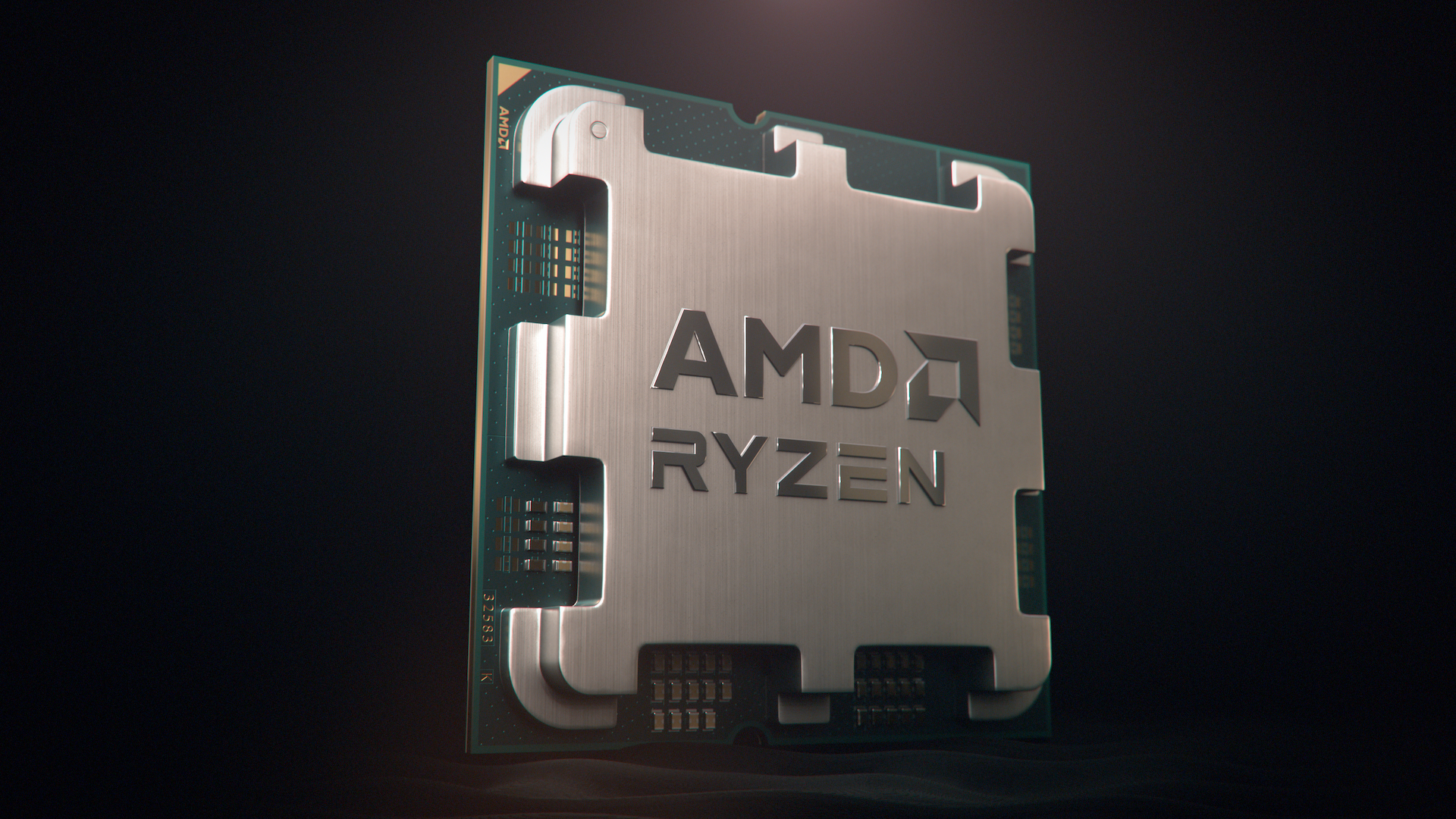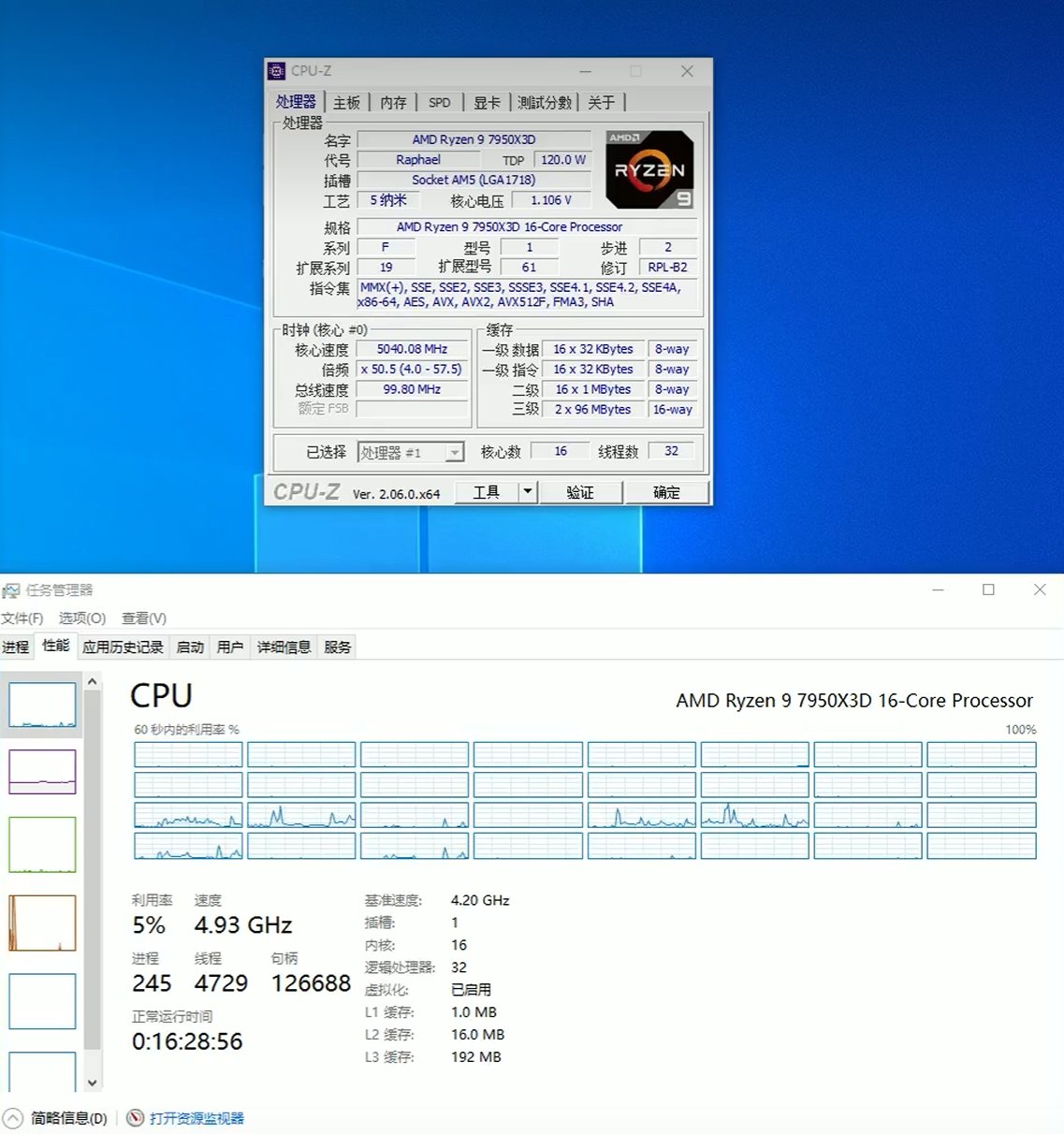
Maybe it was a Windows bug or a supply chain mistake, but an AMD Ryzen 9 7950X3D, one of the best CPUs, surfaced with 64MB more L3 cache than usual. The Ryzen 9 7950X3D 16-core processor typically ships with 128MB of L3 cache, but this one reported 192MB. X user HXL made the rare find and posted screenshots of the Bilibili video with the reported specifications.
While we expected to see a CPU with a 128MB L3 cache, we observed different specs. According to both Windows Task Manager and CPU-Z, the reported capacity of the L3 cache was 192MB. All of the other specifications look normal. AMD designed the Ryzen 9 7950X3D for gamers who wanted to enjoy CPU-limited games while still enjoying the productivity benefits of a 16-core CPU. It utilizes AMD’s second-gen 3D V-Cache and, according to our testing, surpasses Intel’s fastest chip.
Some responses to HXL’s screenshots suggested a bug in Windows. One user believes that it’s an old CPUID bug that erroneously reports 192MB on the L3 cache. Others suggested that the builder lucked out and got an engineering sample, such as a prototype with a double 3D V-Cache die. Unfortunately, the user didn’t perform any benchmarks to verify the integrity of the amount of reported L3 cache.

While a software bug is possible, we can’t discard the fact that the Ryzen 9 7950X3D could be an early engineering sample that AMD was playing with. The technology is there, where the chiplets add 64MB of 7nm SRAM cache stacked on top of each core complex die (CCD). It can produce up to 192MB of L3 cache per Ryzen processor.
Before AMD released the Ryzen 9 7950X3D in 2023, Gamers Nexus visited the company’s campus in Austin, Texas. During that visit, the team discussed the different configurations tested with AMD. Among these were samples with multiple 3D stacked cache dies, which could lead to the 192MB L3 cache configuration being considered. The chipmaker demonstrated an unreleased Ryzen 9 5950X3D with a 192MB L3 cache to Gamers Nexus, so we know at least one exists.
Ultimately, AMD may have opted not to manufacture the Ryzen 9 7950X3D in that configuration to maintain a uniform L3 cache pool. The engineers found that having multiple cache pools caused increased latency in most games, decreasing performance rather than increasing it. If an engineering sample is created, there’s always a chance of it slipping through the cracks. These prototypes are supposed to be recycled or destroyed, of course, but mistakes happen. It seems most likely this extremely rare CPU with an extra L3 cache is one of those engineering samples.
Alternatively, the Ryzen 9 7950X3D with 192MB L3 cache may be an engineering sample of AMD’s upcoming EPYC 4004 series, which are server-grade Zen 4 chips with 3D V-Cache for the mainstream AM5 socket.







